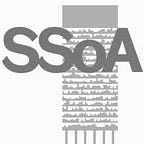UEL at American Association of Geographers Annual Meeting in Washington, DC
Representatives from Urban Education Live partners were presenting current research work and themes associated with the project at the American Association of Geographers Annual Meeting in Washington, DC in early April 2019. The panel was session was co-organised by Panu Lehtovuori,Tatjana Schneider and Gruia Badescu, the latter also chairing the UEL session.
While it is well known that rapid urbanisation is one of the main challenges and possibilities of our age, there has been limited attention on social and spatial innovation in what might be called the ‘countercurrents’ of global urbanisation. As urbanisation is an essentially uneven process, it always involves moments of shrinkage and abandonment, alongside with and structurally linked to moments of growth and development. This ‘countercurrent’ of urbanisation unfolds across scales in emptying regions, shrinking cities, low-trust societies, thinning service networks, marginalised neighbourhoods, abandoned sites and buildings as well as vague and under-defined urban niches. These contexts also provide the opportunity for innovation. At times, local universities and research bodies have a role in linking with communities and building new urban agendas. The panels explore these themes both theoretically and through empirical analysis and case studies. They discuss critical and future-oriented works on urbanisation trends and drivers, locally embedded social and spatial innovations that flourish in contexts with little resources, studies of changing institutions (universities, municipal governments) and their new roles in urban transformations, community and university engagements with shrinking cities, urban capacity building, open education and 1:1 community work, as well as progressive and situated social mapping.
Please see the introduction and panels below:
Presentation 1
Social and spatial innovation in countercurrents of global urbanisation. Cases of San Borja (Chile) and Pasila (Finland)
Authors: Panu Lehtovuori, Tampere School of Architecture, Dalia Milián Bernal, Tampere School of Architecture
Urbanisation is principally understood as a growth phenomenon, referring to growth of urban population, area, economy, density, or socio-cultural diversity. However, urbanisation is an uneven process, involving moments of shrinkage and abandonment, alongside with and structurally linked to moments of growth and development. Despite some academic attention in shrinkage and decline, the topic remains under-researched. Adopting an architectural and urbanistic point of view, the paper focusses on changes and spatial innovations in the context of two modernist social housing estates in different cultural realms: Remodelación San Borja in Santiago de Chile and Eastern Pasila in Helsinki. Key assumption of the paper is that in both cases societal and urban changes have shattered the original modernist vision, creating spaces and moments of abandonment and decline. Because of that, under-defined and indeterminate spaces have emerged in these estates, opening possibilities for spatial and social innovations and new forms of spatial production. Based on primary and secondary data, the paper analyses the circumstances that created indeterminate spaces and explores new forms of spatial interventions unfolding in the estates. We argue that the under-defined or loose spaces allow for an innovative form of spatial production that challenges the predefined agencies of residents and other actors, opening new, productive links beyond the locality to international cultural networks. Interestingly, the bureaucratically organised abstract spaces have been appropriated and reshaped to important social spaces that contribute to well-being, social justice and renewal, despite the different political and economic contexts.
Presentation 2
Collaborations between the University and Civic Initiatives in Sheffield: Challenges and Possibilities
Authors:
Carolyn Butterworth, Sheffield School of Architecture
Tatjana Schneider, Technische Universität Braunschweig
Maša Šorn, Sheffield School of Architecture
The paper discusses research conducted as part of the transnational and EU-funded compound project ‚Urban Education Live‘. It will focus on the national perspective of England and, in particular, collaborations between the School of Architecture at the University of Sheffield, Live Works (the ‘Urban Room‘ run by the School of Architecture) and civic groups across the city of Sheffield. Furthermore, the paper will present findings from focus groups and interviews conducted in Spring and Summer 2018 that tried to establish how civic groups act, and find ways to act, within a political context of austerity.
Presentation 3
Building a socially smart community of users in times of uneven urban development — The post-industrial transformation of old Tobacco factory in Ljubljana
Author: Matjaž Uršič, University of Ljubljana, Faculty of Social Sciences
The discourse on smart urban development is still prevalently concentrated around the concept of smart cities, innovation and creativity in relation to economical and physical transformations of cities. Contrary to this perspective, the paper tries to address the potential of socio-spatial innovation and link it to the establishment of socially smart community of SME’s, NGO’s and other users that is inherently inclusive and tries to provide alternatives to damaging effects of uneven urban development. The barriers that obstruct the process of building a socially smart community of users are numerous and open different questions regarding the urban capacity building or empowerment of user groups under circumstances that influence their working and living conditions. Is it even possible to accumulate enough social, symbolic and cultural capital to produce a different social construction of space that would establish, interweave now split groups of users/actors/stakeholders into a community that thrives in environments that go through tense periods of urban transformation. The problematic is presented through the UEL (Urban Education Live) project and analysis of social networks (social mapping) in the case of post-industrial transformation of an old Tobacco factory in the city of Ljubljana (Slovenia).
Presentation 3
Concluding remarks and insights from Bucharest’s UEL experience
Gruia Badescu discusses the main conclusions of the panel, while reflecting on the experiences of the Bucharest-based Association for an Urban Transition in social mapping and working with neighbourhood communities in what has been described as a “low-trust society”.
